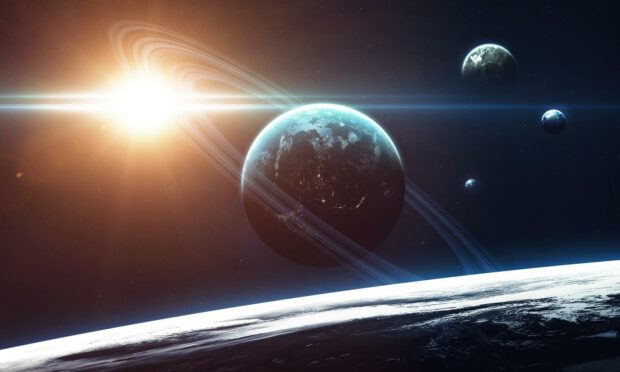Mars experts at the Aberdeen University have launched Scotland’s first postgraduate degree in planetary sciences.
It has been designed by the university’s groundbreaking Planetary Sciences Group, which is part of current and future missions to Mars.
Students of the new MSc Planetary Science will study earth, moon, and planetary sciences, as well as the technology that helps us understand the processes that form them.
Starting in September, the programme will provide an informed understanding of planetary atmospheres and landforms, space environment, astrobiology, and space systems engineering and instrumentation.
The recruitment of the Planetary Sciences Group underlines the university’s long-term Aberdeen 2040 strategy, with its emphasis on research which helps to solve real-world challenges.
Aberdeen perfectly placed amid ‘golden age of space’
The group has developed an instrument which will, among other things, produce liquid water on Mars to support future exploration of the planet.
It is scheduled to go to Mars in 2022, in the ExoMars mission.
Group leader, Professor Javier Martin-Torres, says the university is a perfect place to deliver such a course, given the rapid growth of the space industry in Scotland.
He said: “We live in the golden age of space, and solar system exploration, with unprecedented collaboration and investment between governments and space agencies for moon and mars exploration.
“There is a growing interest in the industry to participate in solar system exploration.
“Ambitious plans for the next decade include sending humans back to the moon, establishing a colony on Mars, probing Venus’s atmosphere and geology, searching for life near Saturn, sending missions to probe the metal core of a dead planet, and exploring the hidden ocean on Jupiter’s moon Europa.
“The science and technology challenges that will be faced by future generations require an interdisciplinary approach.
“The purpose of this new degree programme is to provide an overview of state-of-the-art planetary research and technologies.
“It incorporates training on the main technological challenges that must be considered in deep space exploration.
“This MSc is mainly for people driven by curiosity that would like to follow an academic or research path.
“But it is also very good for people that would like to enter the fast-growing market of space-related companies.”
The university’s Planetary Science Group used life support systems for Mars missions to build ventilators to help fight Covid.
‘Incredible new development’
According to the latest industry survey, ‘Size & Health of the UK Space Industry 2020’, Scotland is now home to 173 space organisations.
These represent around a fifth of the UK space industry’s 126,300 jobs.
Planning permission for a spaceport in Sutherland was granted last year and a recent survey found 85% of young people back the move.
Dr Dave Muirhead, head of the university’s School of Geosciences, described the new course as “an incredible new development.”
He said it would appeal to students from a broad range of science backgrounds, including geology, biology, physics, and engineering planetary science.
He added: “For students with a science background, this MSc will provide the needed spacecraft design and engineering exposure.
“At the same time, it will encourage an appreciation for space science and research, and the supporting technologies for robotic and human space exploration and instrumentation.
“We have a long history of geological and astrobiological research at Aberdeen. This programme allows us to share our passion and wonder for exploration.”
For more information about the MSc in Planetary Sciences, which will be available to study on either a full or part-time basis from September 2021, visit the main programme website.
